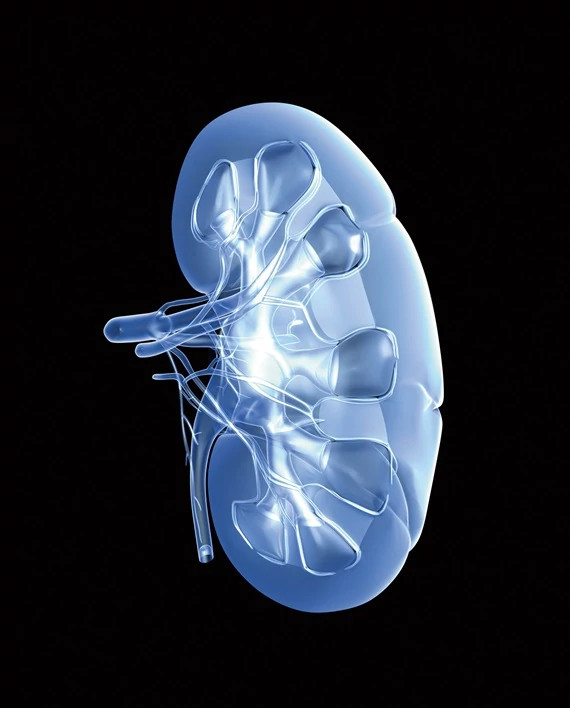FDA approves kidney cancer therapy after Dana-Farber-led research shows improved outcomes for patients with advanced disease
Belzutifan, a HIF-2α inhibitor, has been approved by the U.S. Food and Drug Administration (FDA) for the treatment of patients with advanced kidney cancer previously treated with immune checkpoint inhibitors and anti-angiogenic therapies.
The FDA approval was based on results of the phase 3 LITESPARK-005 trial, a study led by Toni K. Choueiri, MD, director of the Lank Center for Genitourinary Cancer at Dana-Farber Cancer Institute.
Findings from LITESPARK-005 were presented at the European Society of Medical Oncology annual meeting in October 2023. Researchers reported belzutifan significantly reduced the risk of progression of clear cell renal cell carcinoma (ccRCC), the most common type of kidney cancer, in this patient population. The trial compared belzutifan to everolimus and the data showed the risk of progression was reduced by 26%. Responses were 6 times higher with belzutifan compared to everolimus.
"This approval is exciting news for our patients as it gives us a new option for refractory patients with kidney cancer," said Choueiri. "Belzutifan is an oral drug with a novel mechanism of action that reduced risk of disease progression or death and had favorable quality of life in this patient population, when compared to everolimus."
Previously, the FDA approved belzutifan for patients with Von Hippel-Landau (VHL) disease-associated renal cell carcinoma, a rare form of kidney cancer. The drug was originally investigated and approved for kidney cancer patients with VHL disease because they have inherited a mutation that inactivates the VHL gene, which results in an overabundance of HIF-2α in cells.
When overabundant in cells, HIF-2α is associated with increased cancer-driving activity, such as cell proliferation, immune evasion, low oxygen levels (called hypoxia), and blood vessel formation (called angiogenesis). Dana-Farber’s William G. Kaelin, Jr., MD, was awarded a Nobel Prize in Physiology or Medicine in 2019 for the discovery of the role HIF-2α in cancer and other diseases.
LITESPARK-005, enrolled 746 patients with metastatic ccRCC who had progressed after treatment with both an immune checkpoint inhibitor (ICI), such as a PD-1 or PD-L1 inhibitor, and an anti-angiogenic therapy. ICIs and anti-angiogenic medicines have become a standard part of first- and second-line therapies for metastatic ccRCC, though most patients eventually experience disease progression and need additional treatment options.
Patients were randomized to receive treatment with either belzutifan or everolimus. At the second interim analysis, after a median of 25.7 months, patients taking belzutifan were 26% less likely to have progressed compared with those taking everolimus.
The overall response rate was also higher with belzutifan, at 22% versus 3.5%, and 13 patients experienced a complete response with belzutifan compared to none with everolimus.
Regarding safety, findings for belzutifan were consistent with data from previously reported studies and patients taking belzutifan were less likely to discontinue therapy due to side effects.
The trial is sponsored by Merck Sharp & Dohme LLC.
Media Contacts
If you are a journalist and have a question about this story, please call 617-632-4090 and ask to speak to a member of the media team, or email media@dfci.harvard.edu.
The Media Team cannot respond to patient inquiries. For more information, please see Contact Us.

A CT scan of a healthy kidney. Kidneys filter waste from the bloodstream and control the level of certain helpful chemical substances.